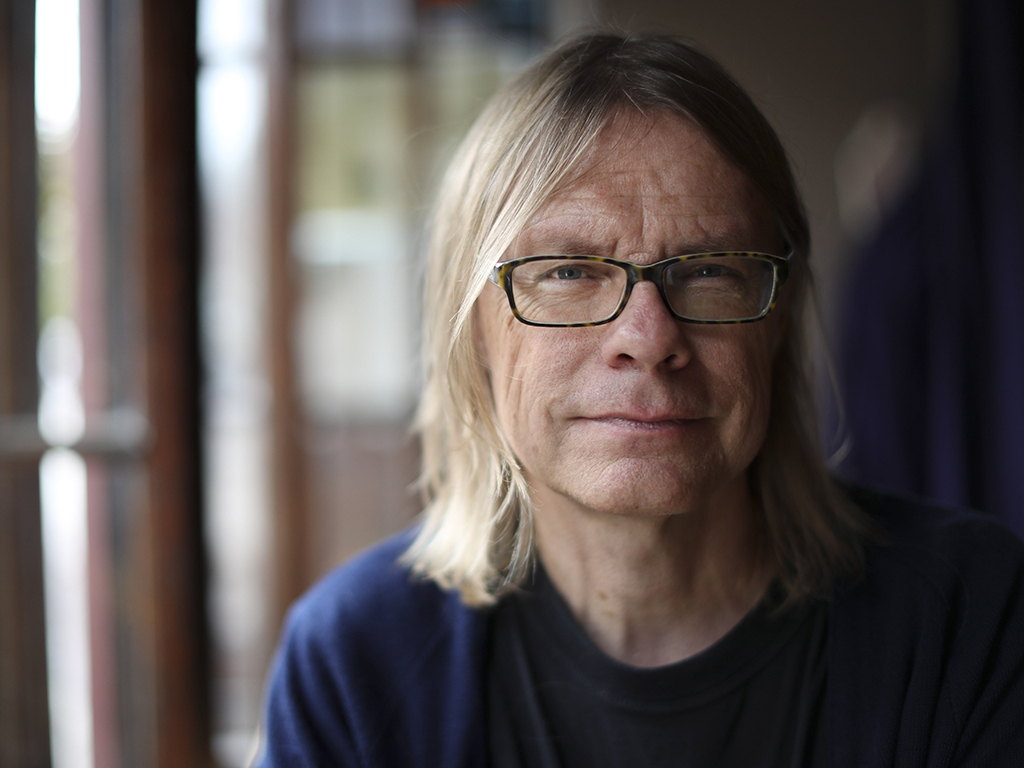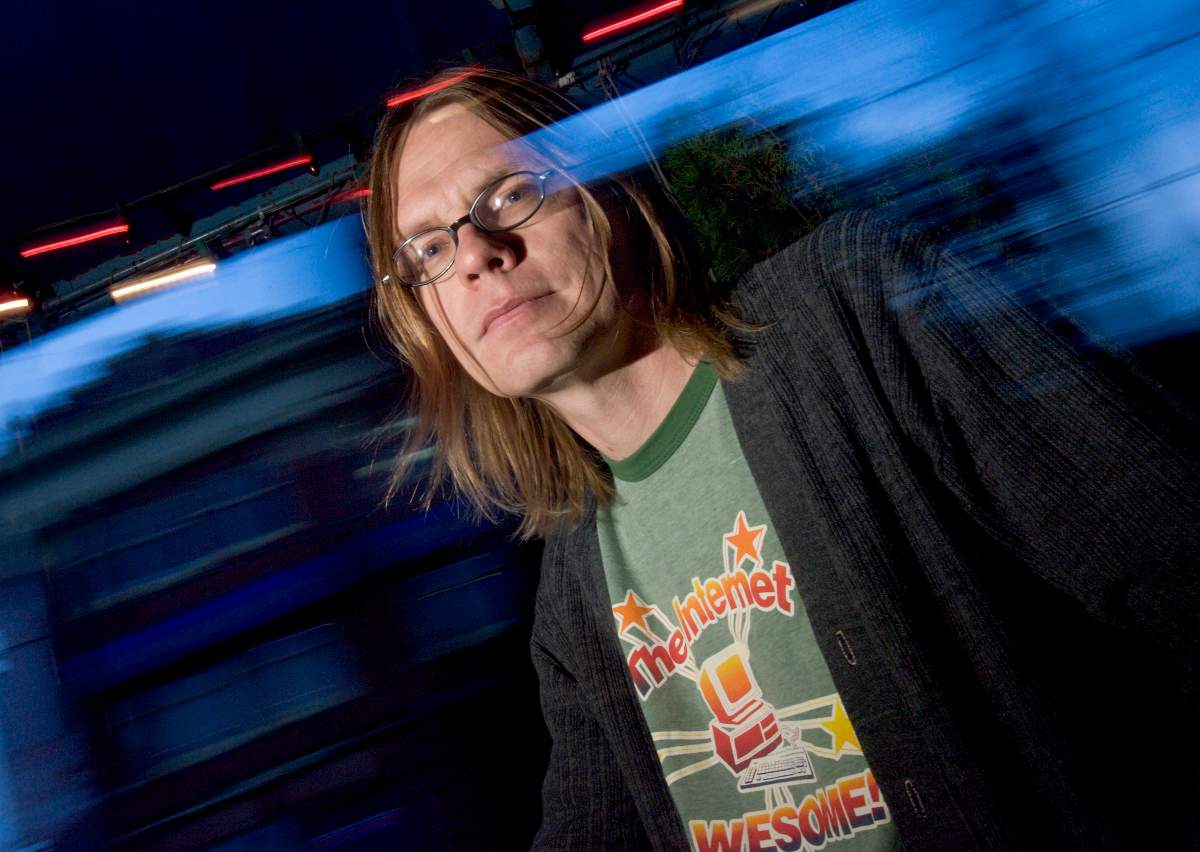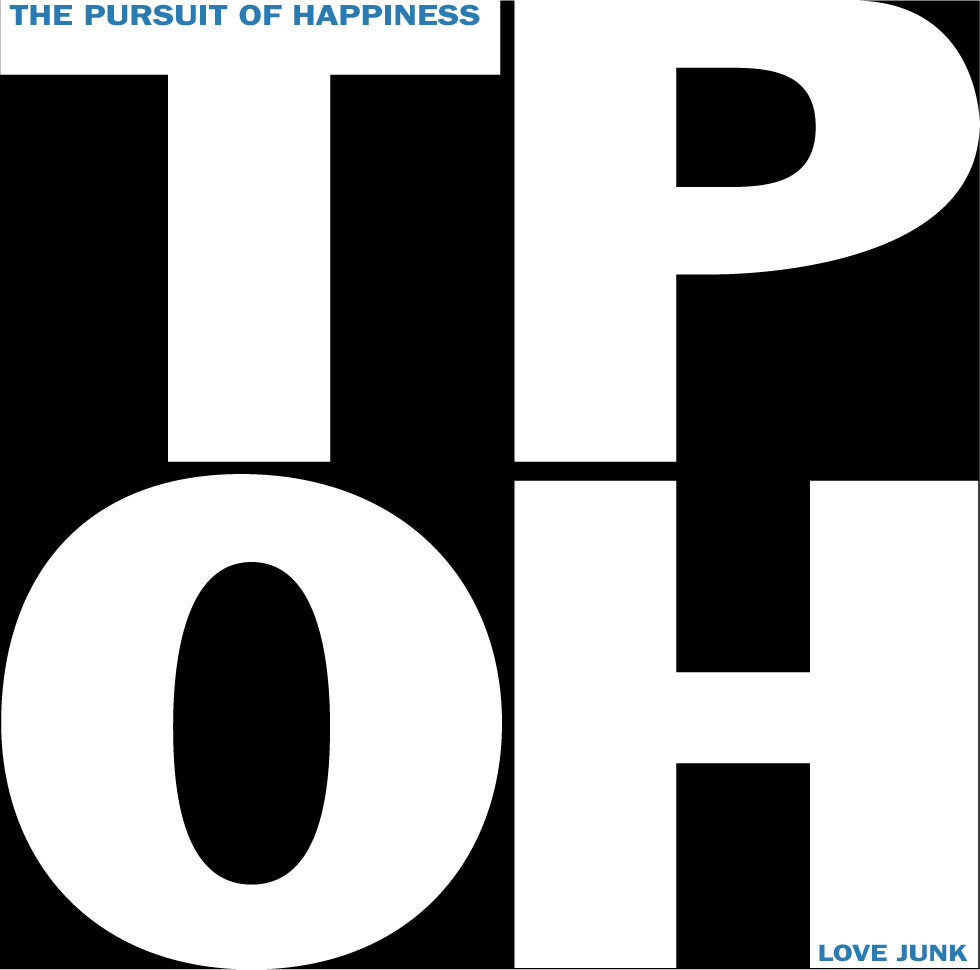After healthily maintaining its legacy for more than three decades, Toronto’s very own alternative band, The Pursuit of Happiness (TPOH), is back for more.

The band is celebrating 30 years of its most successful record to date, 1988’s Love Junk.
The album spawned some of the nation’s favourite indie hits, including Hard to Laugh, She’s So Young and I’m An Adult Now. It was produced by music legend Todd Rundgren and certified Platinum after selling more than 100,000 copies within Canada alone.
An exclusive deluxe edition of Love Junk was released late last year by Umusic. The entire album was remastered and features previously unheard cuts from the original studio sessions, outtakes, live performances and exclusive mixes from the Rundgren sessions.
TPOH has released five studio albums since Love Junk. The band took a long hiatus in 1996 and made its return in the 21st century. Since then, the band has reunited on a number of special occasions to remind Canadian music fans and fellow musicians of its roots, which are grounded in the late ’80s.
WATCH: The Pursuit of Happiness’ 1987 smash hit, I’m an Adult Now
READ MORE: Guitarist Brian May of Queen releases ‘New Horizons,’ first single in 20 years
This weekend, TPOH will be finishing its tour with two shows in Ontario. The band will play the London Music Hall on Friday night as well as the iconic Danforth Music Hall in Toronto on Saturday to end the 30th-anniversary Love Junk tour.
Founder and lead singer Moe Berg recently sat down with Global News to reflect on the band’s beginnings and what fans can expect from their live performance. He even said that if the fans want more TPOH then the band is game for more shows. Berg didn’t rule out the possibility of new music, either.
Global News: You’ve just celebrated the 30th anniversary of Love Junk. How does it feel to still have your music recognized after three decades?
Moe Berg: Well, it’s great. I’m glad the record has had a life and that there was somebody interested in reissuing it. You know what? It feels amazing, actually.
Canada’s music scene seemed small back in the late ’80s, as if it were just being established. Bands really had to work hard and make authentic music in order to be heard. Who was it that first discovered The Pursuit of Happiness?
Quite honestly, a lot of it was just blind luck. When we started out, we went down to a friend’s basement studio and recorded four songs just for a demo tape that would hopefully get us gigs in Toronto. I had this friend who used to work for the National Film Board of Canada, and he suggested that we make a music video. I said: “Sure, I’ll make a video.”
We decided I’m an Adult Now was the right song so we shot a music video for it, just on the street. We had no budget. We handed it to MuchMusic, thinking that maybe they’d play it on the alternative music hour but then they put it on their full rotation. So that was that; it just kind of happened.
We even went into record stores, and the owners would say: “People have been coming in all day asking for your record.” Then they’d ask us if we had a record. We didn’t so they said: “If I were you, I’d press one up.” That’s what we did. We had a friend make jacket art, and they sold out pretty quickly. All of this stuff was just a happy accident so no, we didn’t have to shake anybody’s hand.
READ MORE: Introducing Just Loud, an undefinable up-and-coming music star

Get daily National news
Was it music that sparked your decision to leave Edmonton and come to Toronto?
That’s right, absolutely. I was a musician in Edmonton, but it was extremely difficult to do anything there. There wasn’t really an infrastructure for it and there wasn’t even anywhere for people to play their own music — you could only play if you were in a cover band. I decided to visit some of my friends who moved over to Toronto. As soon as I got there, I thought: “This is the place I need to be.” There were tons of clubs, there were magazines — basically, the entire industry was there. I thought it was my best shot to make it as a musician so that’s when I moved.
Was there any backup plan at the time?
No, I did not have a backup plan. I never thought about doing anything other than this. A good friend of mine has this theory. He says people who are successful in music don’t have a plan B. I kind of see it like Richard Gere’s character in An Officer and a Gentleman.
What are some of your fondest memories of being part of the early Canadian alternative scene?
It was a great time, and I think Canadian music was starting to come of age at that point. There were a bunch of contemporaries at the time. Bands like The Tragically Hip, Cowboy Junkies and Blue Rodeo who may have come a little bit before us, but there were a bunch of bands, nonetheless, that were very different from each other. There wasn’t necessarily a particular scene that people were looking for or listening to, but we all kind of made it happen together. All of those bands — The Grapes of Wrath, too — got record deals. Everybody got a record deal. I think that was the first time a bunch of labels were kind of looking over to Canada hoping for something different or unusual, just something they didn’t have yet.
That made you guys a huge statement for independent musicians in Canada. You worked hard for it and you got your break. Do you think it still works that way in the industry?
I think immediately after that, that whole second wave of bands from the ’90s had the same approach, and they did well with it, too. The best example would be with The Barenaked Ladies. The first thing they released was an indie cassette, and it sold something like 100,000 copies. It was an astronomical amount. There’s no way to equate that achievement to any other band I can think of. The independent spirit really lasted. For me, I came from the punk rock scene in Edmonton so the whole DIY thing was just second nature. We were doing everything for ourselves, and that was normal. I felt it carried on for a while, but it’s extremely different now.
In one way, the business infrastructure that was there when we started doesn’t exist anymore. There are no risks. Companies aren’t willing to invest money into a record anymore unless they know for sure it’s going to be successful, and that makes it hard for bands now. But what they have now is social media. There’s free and easy promotion right there. They have YouTube, where you can reach the entire world.
Do you think that says something about being able to adapt as a musician?
Yeah, musicians kind of have to adapt, especially now. The sad part is that artists now are expected to promote themselves in a way they didn’t use to have to. Some people are good at it, while some are bad. It’s pretty unfortunate.
READ MORE: Who is Jade Bird? Introducing the up-and-coming music star
Your music is heartfelt, inspired and clearly personal. Do you ever find it feels weird to go back and play some of those older tunes from Love Junk? Do they still resonate with you, personally?
I feel like some of the songs were written by a young man, and it’s obvious that they were, but then there are other songs on the record that feel like they were written by my older self as a message to my younger self. In some ways, a lot of those songs speak to me more now than they ever did when I first wrote them. Songs like She’s So Young or I’m an Adult Now or Down on Him seem so real to me now. It’s been good, and I have to give the producer of Love Junk, Todd Rundgren, a lot of credit for that because he really did find the best songs we had. We went in the studio with like 30 demos and he picked the 12 best so I think that really shaped this whole thing.
How did the opportunity come about to work with Todd Rundgren, anyway?
Again, it was just one of those lucky stories. We were in one of the New York offices of Chrysalis Records when they asked who we’d like to produce the first record. I just kind of blurted out Todd’s name with no expectations that it would ever happen. Then a couple of weeks later at a soundcheck, someone came up to me and says: “Oh, you have a phone call” so I pick up the phone and say hello, and the voice says: “Hi, Moe! It’s Todd Rundgren.” That was it; I guess he liked our demos.
Do you remember the very first show with The Pursuit of Happiness?
Yes. We opened for Shadowy Men on a Shadowy Planet at the Rivoli on Queen Street West. Reid Diamond, the bass player — who is, unfortunately, now gone — and I, were in touch back from when we lived in Alberta. He called me up to come to Toronto and join this band called Crash Kills Five, but at that time I wasn’t ready to so we agreed to do something together in the future. Once I got the band together, I contacted him and he said: “You can open for us” because they were doing really well in Toronto. That was a really great gig because we played to a full house, and it really helped us out.
You guys even made it on Beavis & Butthead in 1993 with Cigarette Dangles. How did that opportunity come about?
That was a blast! We were as surprised as anybody else. I’m not sure if record labels supplied them with music or the creators just chose the music, but we didn’t really have a whole lot of forewarning. We had only just become fans of the show before that so when it happened it blew our minds.
I imagine that gave you a lot of exposure, right?
It was fantastic! So many people have talked to us about that. It’s really amazing and it helped give us exposure in the U.S. as well.
READ MORE: Def Leppard embarking on 11-date Canadian tour
What can fans expect from the upcoming TPOH shows?
Largely, these shows are to support the deluxe reissue of Love Junk. We’ve been playing some shows to celebrate that for the past six months so we’re gonna play the record from beginning to end and then we’ll play a bunch of the fan favourites to round it all out.
Is there a possibility of a future tour? Have you guys discussed going back into the studio again?
Nothing’s ever off the table for us. When we stopped playing, it wasn’t that we broke up, we just went on a really long hiatus. We came together periodically if someone wanted us to play. We’re open to whatever so if people still want to see us play in the future, then we’d definitely consider that. As far as recording new stuff goes, that’s possible. If someone really wanted to hear new stuff, we could be convinced to make it happen!
So it’s in the hands of the fans?
I guess so. At this point in your career, I believe that’s the way it should be.
—
Tickets for the upcoming The Pursuit of Happiness shows can be found on Ticketmaster.
The 30th-anniversary deluxe reissue of Love Junk is now available through MusicVaultz.
Love Junk 30th Anniversary Tour 2019
Jan. 11 — London, Ont. @ London Music Hall
Jan. 12 — Toronto, Ont. @ The Danforth Music Hall
This interview has been edited and condensed.











Comments
Want to discuss? Please read our Commenting Policy first.